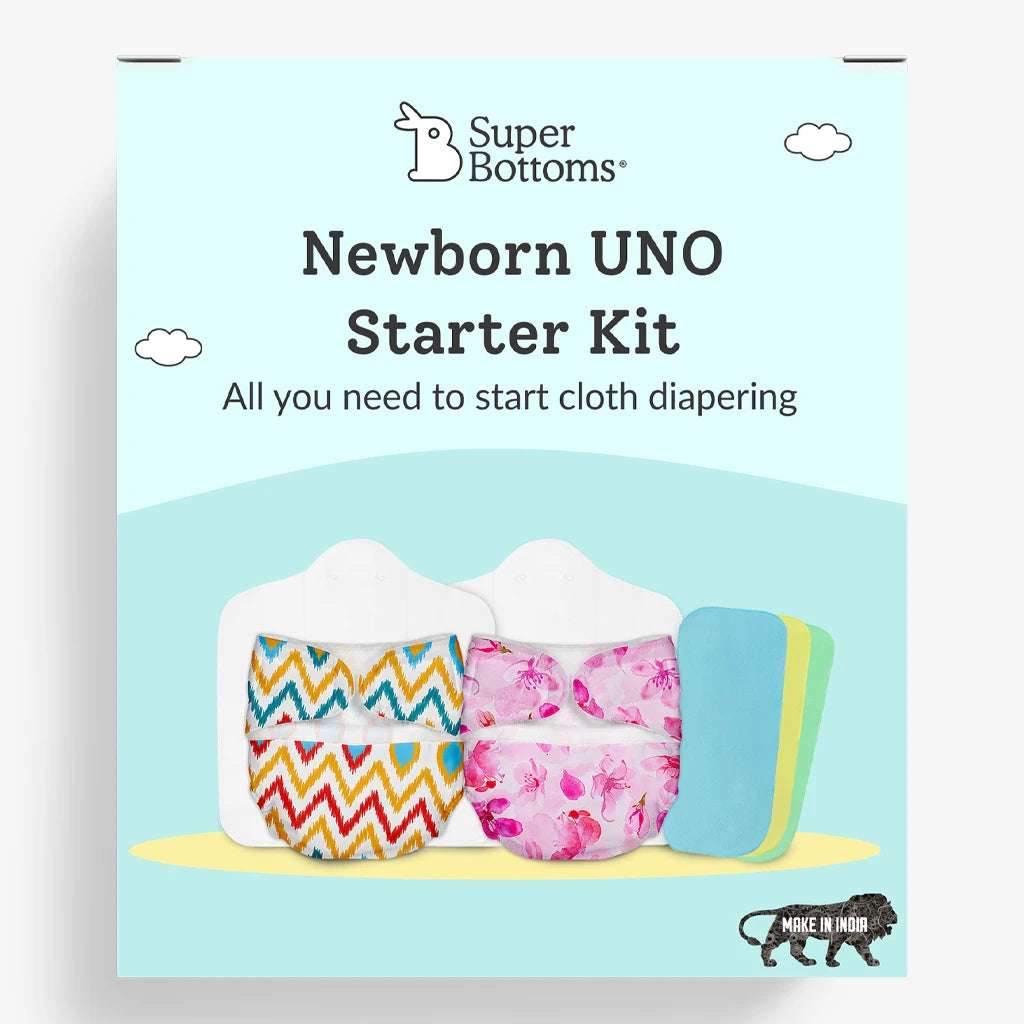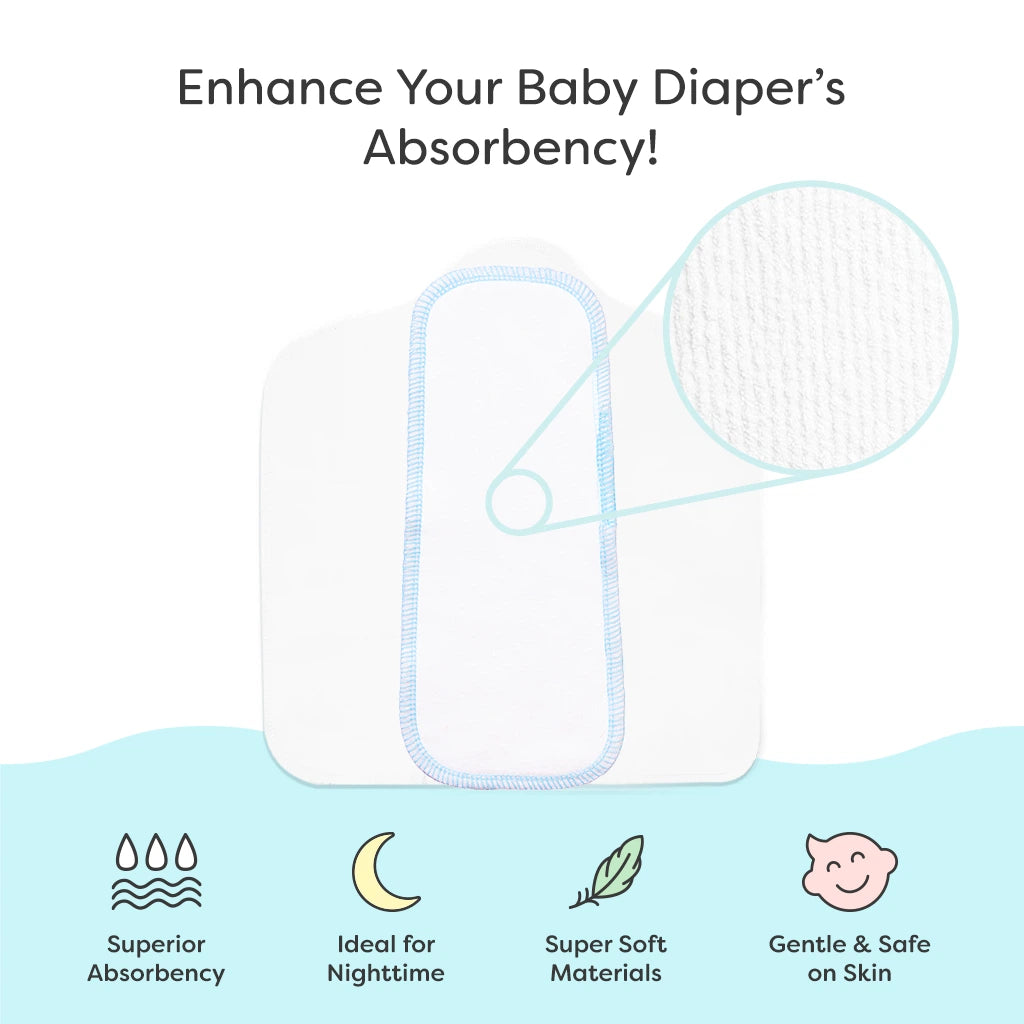• Introduction
• 10 Early Signs and Symptoms Of Pregnancy
• Key Takeaways
• Frequently Asked Questions (FAQs)
• Message from SuperBottoms
• References
Pregnancy is an enjoyable, exciting, and wonderful time in a woman’s life, as she brings in a future and allows nature to teach the changes in her body and mind. When a woman is pregnant, she must take care of her body to the best of her ability to create the best possible environment for her baby. Other than pregnancy tests and ultrasounds, there are other signs and early common symptoms of pregnancy.
In this SuperBottoms article, you can look out to know when do early pregnancy symptoms start.
10 EARLY SIGNS AND SYMPTOMS OF PREGNANCY:
Below given are the ten early symptoms of pregnancy:-
1. Missed Periods: One of the earliest and most notable signs is early pregnancy symptoms after a missed period.
• Cause: When you are not pregnant, the lining of the uterus sheds during menstruation, causing bleeding. However, when conception occurs, the fertilised egg implants itself into the uterus, leading to hormonal changes that prevent the shedding of the uterine lining. As a result, pregnant women do not experience regular menstrual bleeding, and this absence of a period indicates a possible pregnancy.
• Important Note: It's important to note that early pregnancy symptoms after a missed period alone do not always confirm pregnancy, as there can be other factors like stress, hormonal imbalances, or certain medical conditions that can cause irregularities in the menstrual cycle. However, suppose you have been sexually active and are experiencing early pregnancy symptoms after missed period. In that case, you should take a home pregnancy test or consult a healthcare professional for confirmation of early pregnancy symptoms before period.
2. Increased Urination: Increased urination is a common early common symptom of pregnancy experienced by many pregnant women.
• Cause: During pregnancy, hormonal changes occur, including increased blood flow to the kidneys. This increased blood flow causes the kidneys to filter more fluid, increasing urine production. Additionally, as the uterus expands to accommodate the growing baby, it puts pressure on the bladder, reducing its capacity and causing the need to urinate more frequently.
• Remedy: Staying hydrated is essential, as it helps flush out toxins and maintain amniotic fluid levels. Ultimately, it is advisable to empty the bladder to minimise the risk of urinary tract infections. If you experience pain, burning sensation, or other discomfort while urinating, it is recommended to consult a healthcare professional to rule out any underlying condition or complications.
3. Tender Breasts and Nausea: Alongside tender breasts, many pregnant women experience nausea, commonly known as morning sickness.
• Cause: Tender breasts are a common symptoms of early pregnancy caused by hormonal changes that prepare the body for breastfeeding. The breasts may feel sensitive, sore, or fuller than usual.
• Remedy: It is essential to manage discomfort by wearing a well-fitting supportive bra, eating small, frequent meals, staying hydrated, and getting adequate rest.
4. Early Fatigue: This occurs in the first trimester of pregnancy. These first-trimester pregnancy symptoms get better with the start of the second trimester and return in the third, though the severity varies from pregnancy to pregnancy.
• Cause: During the first trimester, a tremendous amount of energy is required to build a life-support system for your baby’s growth and development, namely the placenta, which is why you might feel extra tired. Your blood sugar levels and blood pressure are also lower as now you are sharing everything with your baby. Hormones significantly increase progesterone, making you sleepy and lazy.
5. Cramping and Spotting: Mild cramping can cause slight discomfort and may be accompanied by light spotting, typically lighter and shorter in duration than a regular period.
• Cause: It is a common early pregnancy symptom as the fertilised egg implants into the uterine lining, a process known as implantation.
• Remedy: During this phase, make sure you wear your Bladder leak underwear or Incontinence underwear by SuperBottoms. It is crafted with soft, breathable, and stretchable fabric to ensure a comfortable and snug fit. The elastic waistband and leg openings offer flexibility and prevent leaks, providing peace of mind throughout the day. If you are not comfortable with underwear, you can also use SuperBottoms Flow Lock Cloth Pads.
6. Bloating and Constipation:
• Cause: Bloating may occur due to hormonal changes and early pregnancy symptoms before your period, which can also slow your digestive system. You may feel constipation early pregnancy symptoms, leading to a bloated abdomen. Because the body releases much more progesterone during pregnancy, the body makes more gas. These relaxed muscles slow down the rate of digestion, leading to gas, bloating, burping, and uncomfortable sensations in the gut.
• Remedy: Every female has a different body, stamina, and feelings. Some may undergo significant changes, and some may take it as a walk in the park! It’s best to note your symptoms and consult a specialist to be sure of them.
7. Mood changes: Mood changes are an early common symptom of pregnancy experienced by many pregnant women. Pregnant individuals may find themselves experiencing a wide range of emotions, including increased irritability, mood swings, and heightened sensitivity.
• Cause: Hormonal fluctuations, notably a surge in progesterone and estrogen levels, can significantly impact emotions and mood.
• Remedy: It's essential to understand that every person's experience is unique, and the intensity of mood changes can vary. Practising self-care, maintaining a healthy support system, and communicating with loved ones can help manage these mood changes.
8. Lower back pain: Lower back pain is a common early symptom experienced by many pregnant women.
• Cause: As the body changes to accommodate the growing baby, the ligaments and joints in the pelvic area loosen. Combined with the shifting centre of gravity, this can strain the lower back, leading to discomfort and mild to moderate pain.
• Remedy: Practising good posture, engaging in gentle exercises, and using heat or cold packs can relieve this discomfort.
9. Morning Sickness: Morning sickness is characterised by feelings of nausea and, in some cases, vomiting.
• Cause: It is believed to be caused by hormonal changes, specifically increased levels of human chorionic gonadotropin (hCG) and estrogen. Though uncomfortable, morning sickness is typically a positive sign of a healthy pregnancy.
• Remedy: To manage healthy pregnancy symptoms, it is recommended that you eat small, frequent meals, avoid triggering foods or smells, stay hydrated, and consider ginger or other natural remedies.
10. Headaches: Hormonal changes, particularly increased estrogen levels, can contribute to headaches during pregnancy.
• Cause: Factors such as changes in blood circulation, increased stress levels, dehydration, and fatigue may also trigger headaches.
• Remedy: Managing headaches by maintaining proper hydration, practising relaxation techniques, getting adequate rest, and using natural remedies like applying a cold or warm compress to the affected area is essential.
However, if these symptoms become severe or persistent, it is recommended to consult a healthcare professional for guidance and appropriate management strategies.
|
Limited Offers Ending Sooner - BUY NOW Now or never offers live on the SuperBottoms website. Take advantage of the never-before Good Value for Money on our offer page! Stock up on the bestselling UNO diapers, accessories and other popular SuperBottoms baby and mom products now available in deals and discounts. HURRY, the Deals are Live till stocks last! |
Key Takeaways:
1. Awareness of the ten common early pregnancy symptoms can help individuals better understand the changes their bodies may undergo during this time.
2. From missed periods and increased urination to tender breasts and mood changes, these signs serve as potential indicators of pregnancy.
3. Suppose you suspect you may be pregnant or are experiencing any of these symptoms. In that case, you should take a home pregnancy test or consult a healthcare professional for confirmation, guidance, and support throughout your pregnancy.
FREQUENTLY ASKED QUESTIONS (FAQs):
Q: Can I have healthy pregnancy symptoms even if I haven't missed my period yet?
Ans: Yes, it is possible to experience early pregnancy symptoms even before a missed period. Hormonal changes can occur in the body shortly after conception, leading to symptoms such as nausea, breast tenderness, and fatigue.
Q2: What is the difference between implantation bleeding and a regular period?
Ans: Implantation bleeding is lighter and shorter in duration compared to a regular period. It may appear as light spotting and is usually pink or brown. If you suspect you are pregnant and experience light bleeding that differs from your expected period, it could be a sign of implantation bleeding.
Q3: Are all women affected by morning sickness, and how long does it last?
Ans. No, not all women experience morning sickness during pregnancy. It is estimated that around 70-80% of pregnant women experience some degree of morning sickness, while others may not have nausea or vomiting. Morning sickness can vary in duration and intensity. It may only last for the first trimester for some women, while others may experience it throughout their entire pregnancy. It's important to note that each woman's experience is unique.
Message From SuperBottoms
Hi there, new parents! No matter where you are around the world or in India, SuperBottoms ensures your kids are using the best and safest products. SuperBottoms offers the best cloth diapers, which are completely safe and gentle for your baby, DryFeel langots for diaper-free time, padded underwear for potty training your kids, and period underwear for women. These products suit your baby's delicate skin at any time of year. SuperBottoms is a must-have product for you and your child whether you live in Canada, Kuwait, the United States, Qatar, Hawaii, Bahrain, Armenia, the United Arab Emirates, or the Philippines. SuperBottoms products are also available on Amazon, Myntra, Flipkart, FirstCry, Zepto, Swiggy and Blinkit.





















































































































